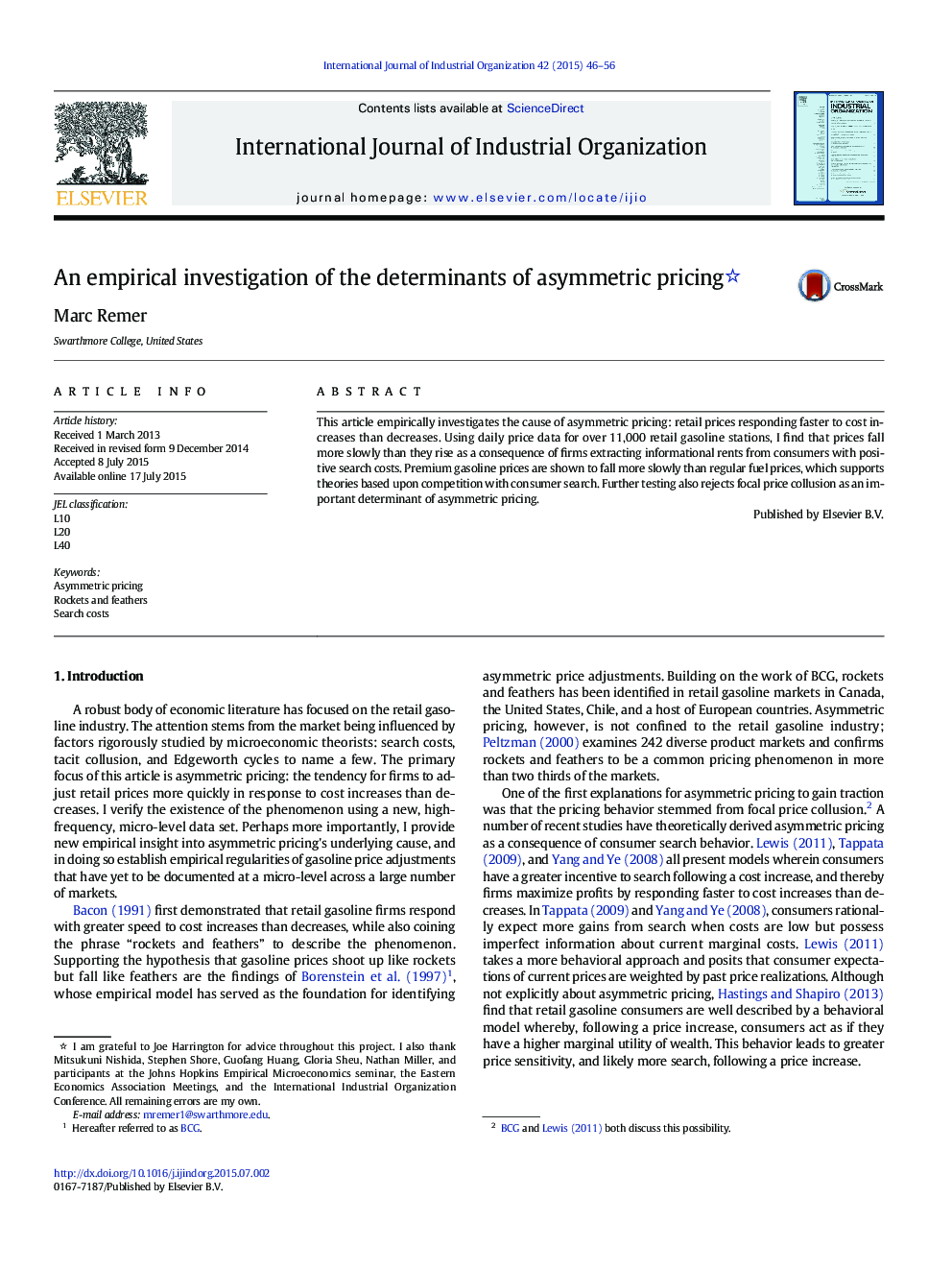| Article ID | Journal | Published Year | Pages | File Type |
|---|---|---|---|---|
| 5077893 | International Journal of Industrial Organization | 2015 | 11 Pages |
Abstract
This article empirically investigates the cause of asymmetric pricing: retail prices responding faster to cost increases than decreases. Using daily price data for over 11,000 retail gasoline stations, I find that prices fall more slowly than they rise as a consequence of firms extracting informational rents from consumers with positive search costs. Premium gasoline prices are shown to fall more slowly than regular fuel prices, which supports theories based upon competition with consumer search. Further testing also rejects focal price collusion as an important determinant of asymmetric pricing.
Related Topics
Social Sciences and Humanities
Economics, Econometrics and Finance
Economics and Econometrics
Authors
Marc Remer,
